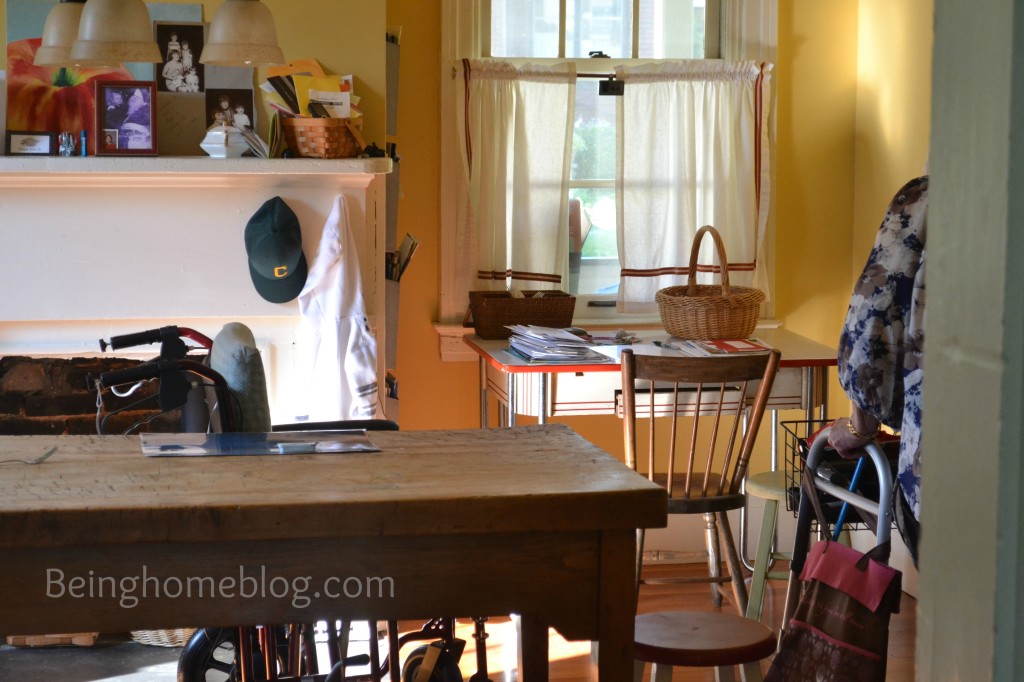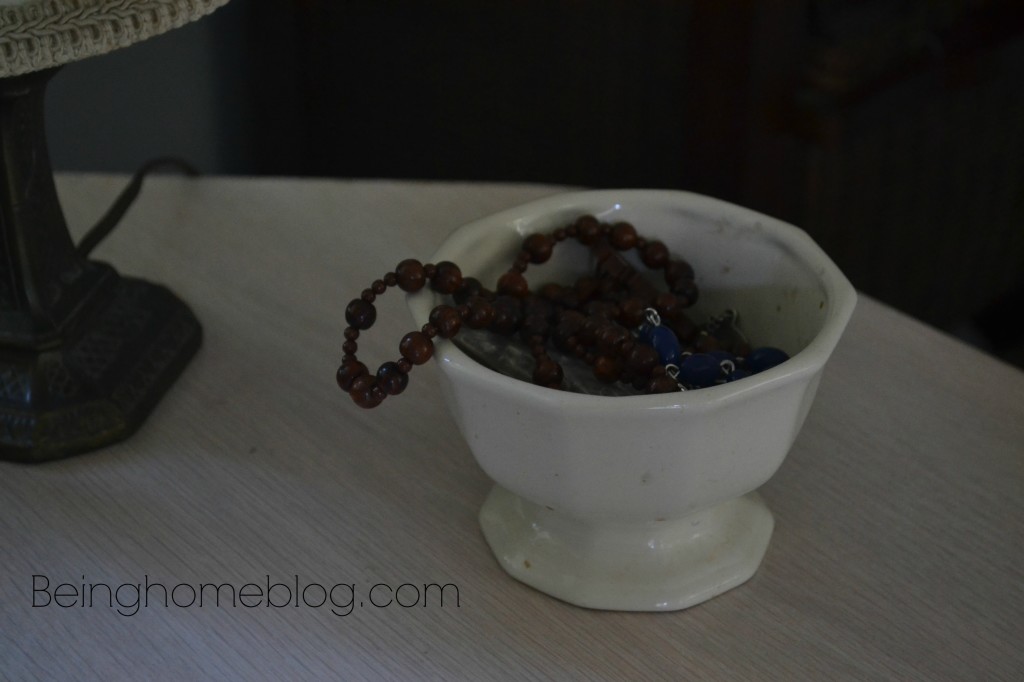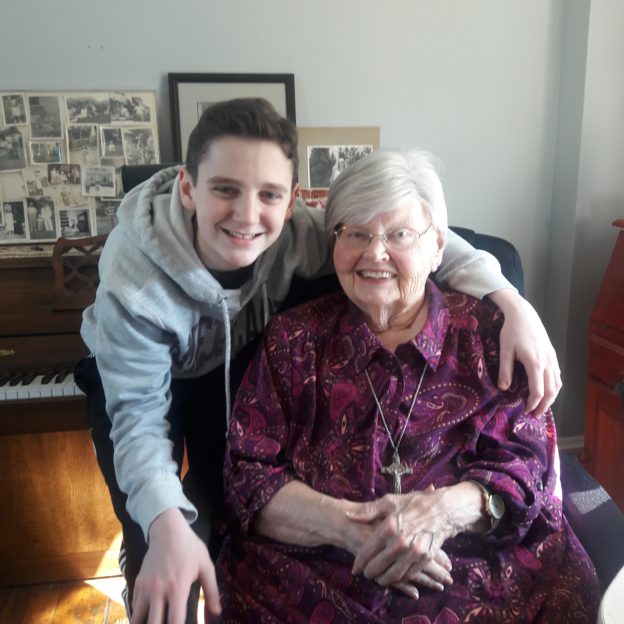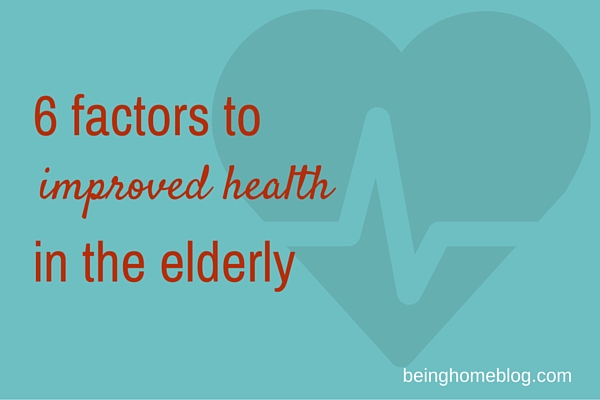
The only thing I expected from my (maybe impulsive) decision to invite my 78 year old aunt to live with my family was the unexpected.
The only thing I knew for sure was that I couldn’t proceed without substantial amounts of Grace (as in from God). I also knew that I couldn’t possibly envision what changes it would bring. It might be the scariest thing I ever did willingly. I refused to focus on that, though and trusted that each day would be o.k. That’s how I continue to approach it.
This kind of move happens when you simply don’t want to see a person suffer.
I barely consulted my husband who has been incredibly supportive and trusted that I could make it work.
My mom and I flew by the seat of our pants and put a plan together in a matter of what seemed like minutes but in reality was about two weeks. That term “plan” is used in the loosest sense possible. I should give credit here to my cousin who, in the eye of the crisis, helped my mom formulate the plan to get my aunt admitted to the hospital then hopefully to therapy to give us time to get ready in Pittsburgh.
Truth is, you can’t plan for this.

Familiar Rosaries on a familiar table
You can only manage as you go.
You can only try make the best decisions possible… with the facts at hand… as they relate to the primary person(s) and go from there. The information can change daily or hourly and you adjust (as best you can).
Here are some of the facts:
1. I love my aunt and she needed help.
2. She was unable to care for herself (personally or financially). When she was admitted to the hospital (after a minor fall out of bed which only resulted in a lost big toenail), she was severely dehydrated, had a urinary tract infection, bladder infection, open raw sores on her belly and a heart situation likely related to her compromised health. In short, she was a hot mess and likely wouldn’t have survived more than a few days or a week without intervention. To be honest, we knew she had declined considerably over the winter but having been independent her entire life, navigating the intervention stage was tricky. How do you convince someone who feels fine that she really isn’t? The signs were there but it was a delicate matter broaching the subject and our concerns. That minor fall was what saved her. Proof positive that what seems terrible can be a blessing in disguise.
3. I have the space in my house because we recently rearranged things here to allow my getting-bigger family to spread out a little. This recent rearrangement repurposed a living room into a bedroom on the main floor…perfect for Aunt Linda-NO STEPS!
4. I don’t work outside the home which gives me the flexibility to make things work as best I can. It’s tricky but we’ve managed so far. Sure, my life has changed drastically (and I knew it would, I just wasn’t sure HOW). I’ve tried to make the transition as easy on Mark and the kids as possible. They all have been supportive and in spite of the sacrifices, are glad that she’s here and safe.
5. I love my aunt like a 2nd, (3rd, 4th) mother (I’ve been blessed with many women who have mothered me-including my own “Mummy”).
6. She deserves to be taken care of.
7. She still knows me (It would be hard to take care of her if she were scared of me and didn’t really know me or the family).
8. She’s not mean. (I don’t know that I could bring a mean person into the house, even if the meanness was due to dementia).
9. She still knows and loves my children (in particular, she is smitten with my youngest, who’s only too happy to have the extra audience-God Help Us!-Sorry future wife). In spite of her short-term memory loss, she is very engaged and engaging (much improved since she’s been here) and is very interested in the kids’ comings and goings and enjoys their company.
10. My mom lives three houses away. (A big factor in my thought process), so does my cousin, the nurse.
11. My 4 brothers and 2 other cousins (who also love her like a mother) live in the same town or close by.
12. My mom couldn’t manage her sister’s care from 4 hours away. Believe me, she tried and it was exhausting-we made three or four trips in as many weeks and my mom ended up just staying for the duration of my aunt’s nursing home stay.
13. A nursing home wasn’t a good option when my home was available. My aunt was in one of the better ones and it was short-staffed. In 3 short weeks she became nighttime incontinent. Luckily I was able to convince her to wake me through the night to regain it but it was just one effect of understaffing. You always have the risk that a few employees can be rude or indifferent-even one of my aunt’s friends who volunteers there admitted that there were a few bad eggs. That’s intolerable in any situation but especially with a person as vulnerable as my aunt was.
14. This aunt should be canonized. (I tease her every time I cut her toenails or fingernails that I’m collecting relics- she laughs every time I say it-except when I draw blood then she tells me I’m making relics. Jokes never get old to a person with short- term memory loss).
So, those are the facts which led to the quick turn of events that resulted in moving my aunt into our home.
I didn’t anticipate how much I would worry about her minor health issues. When a kid gets a cold, the coughing might keep you awake at night, not necessarily the worry that it might lead to pneumonia.
I didn’t anticipate the resistance by some to a plan to place a never-married, 78 year old woman with no children of her own in a loving home surrounded by family that she still knows rather than a nursing home 4 hours away from that family.
The one person who I expected the most resistance from, a lifelong friend whose life would change the most drastically by the move and who is dealing with her own crisis was and continues to be so selfless and supportive, I am still humbled by it.
I find myself balancing options and outcomes often. A good life lesson.
I try to remember what I did expect when this plan began to formulate:
I thought there was a good possibility that my aunt would be bed-ridden or wheelchair-bound (thankfully she’s not).
I didn’t know whether removing her from her home would add to her confusion. We tried to minimize that by decorating her room with things from her own home. Even a few furniture pieces fit.
Since my aunt spent her days for the previous two to three years sitting at her table watching TV, reading spiritual books or praying for people, I thought she would be doing that here.
As it turns out, Aunt Linda spends very little time in her room, which I think is great but also adds an element of responsibility to keep her occupied and engaged.
Since my aunt spent no time outside, I didn’t expect that she would enjoy sitting on my back porch so much. Thankfully, the summer has been relatively temperate (even cool) and it’s her favorite place to be. She can see my mom’s place from there and she loves to see her white head bobbing down the walk toward our porch.
One challenge has been her need for companionship. I just didn’t expect it since she’s lived by herself her entire adult life. When someone isn’t visiting, I feel responsible to keep her company most days. The kids are also around and will visit with her. I know it isn’t absolutely necessary and she understands that I have things to do but I think it brings her a measure of security so I accept it and am grateful that I don’t have many obligations that take me away from the house for long periods of time. Also, when I think of the alternative (worrying and trying to visit her in a nursing home here or 4 hours away), I’d much rather have her here.
Overall, I’m happy to report that she is much more alert and lucid than she’s been for a couple of years. A few people have commented that they feel like she’s back to her old self (before any signs of dementia were apparent) and I agree. She’s witty, alert, engaged, thoughtful and I’m getting into the habit again of asking for her advice. When I run something by her, the answers have been thoughtful and spot-on.
The rythym of our days has added enough variety to hers that there’s something worth remembering. The relatively constant stream of visitors has also given her a life of her own that’s worth remembering. Where two or more are gathered…she thinks it’s a party and she enjoys it. It’s even more fun when she can look forward to it (like when we celebrated “Hugh Twyman Day” along with Mark’s and my mom’s birthday last week).
I know her being here is divinely orchestrated and an incredible gift to our family. The hard parts (getting up through the night, the extra laundry, feeling responsible for her engagement and worrying about her health issues) haven’t really been that hard. I’m surprised that I’m not dead tired all day but I’m not. I have an incredible support system and really feel that I can ask for ANYTHING I need. I promised everyone close to me that I would do that.
I’m learning so much about the dynamics and logistics of elder care that I hope to pass on some strategies and tips.








